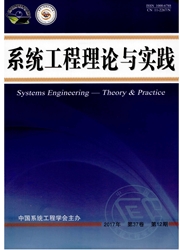

 中文摘要:
中文摘要:
频发的食品安全事件不仅危害了消费者的健康,也给食品消费市场带来了冲击.本文结合消费者对溯源的支付意愿和供应商的溯源能力差异,给出了零售商的四种采购策略,讨论了消费者对溯源的支付意愿强弱,具有溯源意识的消费者细分市场大小,食品安全事件的发生概率高低,以及食品安全事件发生后企业承担的额外惩罚等因素对零售商采购策略选择的影响.研究发现,提升消费者对溯源的支付意愿或扩大具有溯源意识的消费者细分市场,可能会导致意料外的结果,如零售商增加不可追溯食品的采购量;而强化监管和加大对食品安全事件的处罚力度往往有助于提高市场上可追溯食品的供应.
 英文摘要:
英文摘要:
The frequent occurrence of food safety incidents is not only to be hazardous to the health of consumers, but also impacts the market of food consumption. Integrating the consumers' willingness to pay for traceability and the difference between suppliers' traceability, this paper provides four sourcing strategies for the retailer. Then, we investigate the sourcing decision of the retailer considering consumers' willingness to pay for traceability, the portion of consumers with traceability consciousness, probability of food safety incident, and additional penalty incurred by food safety incident. We find that increasing consumers' willingness to pay for traceability or expanding the portion of consumers with traceability consciousness may incur unintended consequence, such as an increase in sourcing quantity of non-traceable food product, while efforts on strengthening inspection supply of traceable food in the market. and penalizing the retailer always lead to more
 同期刊论文项目
同期刊论文项目
 同项目期刊论文
同项目期刊论文
 期刊信息
期刊信息
